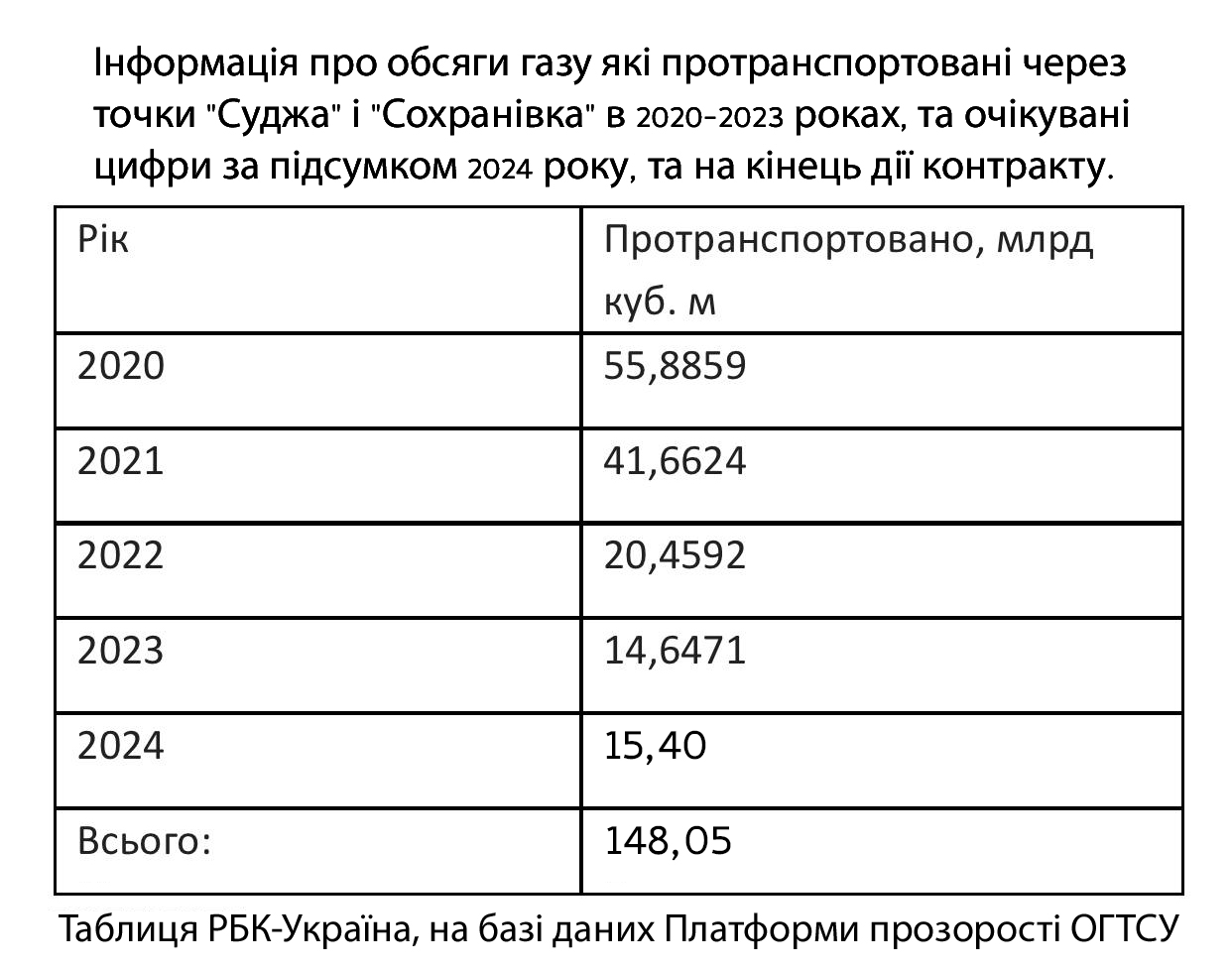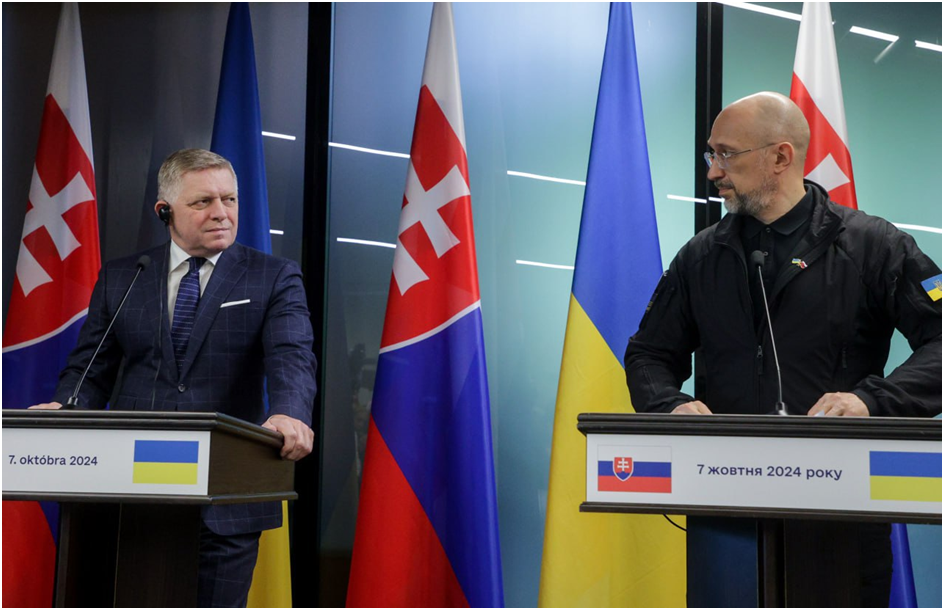Ukraine will not transport gas from Russia. Is Europe prepared, and what are the risks for Moldova?
The chances of extending gas transit from Russia through Ukraine to the EU and Moldova are nearly zero. Europe has found alternative routes, albeit more expensive ones. Meanwhile, Moldova is still negotiating with Moscow regarding gas supplies, fearing a "humanitarian disaster" in Transnistria. Special correspondent for RBC-Ukraine, Yuri Doshchatov, investigated the prospects for gas transit through Ukraine.
Naftogaz of Ukraine has received the final payment from Gazprom for the transit of Russian gas through Ukraine. This is an advance payment for transit supplies in December. According to RBC-Ukraine, the funds were transferred to the company at the end of last week. The exact amount of the payment has not yet been clarified, but based on the publication's calculations, Gazprom was supposed to pay about $70 million for the December transit.
In fact, this is the last direct payment from the Russian company to Naftogaz for transit services. The payment for oil transit through the Druzhba pipeline was assumed by the purchasing country, Hungary, back in 2022.
How much gas from Russia has passed through Ukraine
Over the five years of the transit contract—from 2020 to 2024—146.6 billion cubic meters of gas have passed through Ukraine to the EU and Moldova as of November 25. By the end of the year, considering supplies in December, the volume could increase to 148 billion. This is 36% less than the expected volume of 225 billion cubic meters.
However, the reduction in supplies should not have affected the payment for transit. The contract was signed with the condition of "take or pay." This means that regardless of the pumping volumes, Gazprom committed to pay for the transit of 65 billion cubic meters of gas in 2020, and in subsequent years—40 billion each year.
In the first year of the contract, the Russian monopolist essentially fulfilled its payment obligations. Pumping approximately 55.89 billion cubic meters, according to open data from OGTSU, it paid about $2.1 billion. In 2021, transit slightly exceeded expectations, totaling about 41.7 billion cubic meters and was paid in full. According to RBC-Ukraine, the total amount of payments for transit in 2021 was $1.45 billion.
In 2022, after the start of active hostilities, transit dropped to 20.46 billion cubic meters due to the cessation of supplies through the "Sokhranovka" GIS. In 2023, it fell to 14.65 billion cubic meters, and in 2024, around 15.4 billion cubic meters are expected. At the same time, the payment amount for the current year, according to RBC-Ukraine sources, may be just over $800 million.
Gazprom has refused to pay for the reduced transit through "Sokhranovka" for the third year now—averaging 30 million cubic meters per day or 11 billion cubic meters per year. Naftogaz has filed a lawsuit regarding this issue in arbitration, and a year ago, the claim amount was about $700 million. "The amount will grow, considering that 2024 is still ahead. As of today, the accumulation for payment stands at $679 million," said company head Alexey Chernyshov in an interview with RBC-Ukraine a year ago.
 Prospects for transit are dwindling
Prospects for transit are dwindling
As December 31 approaches, when Naftogaz's contract with Gazprom expires, the likelihood of continuing gas supplies through Ukraine in 2025 seems increasingly unlikely.
Ukraine is categorically not planning to extend the contract, and the proposed alternative option related to gas storage in Ukrainian UGS facilities has not interested other participants in the process.
Countries that were the main buyers of Russian gas via land routes have already indicated that they can manage without it.
Slovakia, which recently tried to persuade Ukraine to maintain gas transit, has announced the signing of a trial contract for gas supplies from Azerbaijan. However, not through Ukraine as previously planned, but via the "Turkish Stream," which can also carry Russian gas.
 Ukrainian Prime Minister Denis Shmyhal and Slovak Prime Minister Robert Fico (photo: Telegram/Denis Shmyhal)
Ukrainian Prime Minister Denis Shmyhal and Slovak Prime Minister Robert Fico (photo: Telegram/Denis Shmyhal)
Additionally, Slovakia has alternative routes, including from Germany through the Czech Republic. The main buyer of Slovak gas, SPP, has reported that it has diversified its gas procurement contracts with companies such as BP, Exxon Mobil, Shell, Eni, and RWE. If transit through Ukraine ceases, they plan to expand the contracts.
However, Bratislava has already noted that this will be more expensive. "If the company loses Russian supplies and has to purchase the entire required volume from another source and physically transport it to Slovakia, it will cost at least 140 million euros more," SPP stated.
Gas supplies to Austria through Ukraine were completely halted on November 16 by Gazprom's decision. The Russian monopolist made this decision after the Austrian company OMV announced its intention to deduct 230 million euros (+%) from the next gas payment, which arbitration awarded in its favor against "Gazprom Export" as compensation for losses due to irregular gas supplies from "Gazprom Export" to Germany until September 2022. This amount is comparable to a month's payment to Gazprom for gas. In response, OMV seized Russian gas as compensation for the arbitration decision. Thus, Reuters notes that cooperation between Austria and Russia in the gas sector, which lasted almost 50 years, has effectively been interrupted. This is the first case where an EU client has not paid Gazprom for gas, the agency highlights.
However, transit volumes through Ukraine did not decrease after the cessation of supplies to Austria and remain at 42 million cubic meters per day. It is likely that the volumes of gas previously received by OMV are now being taken by other buyers or even OMV itself, but through different companies, which is more expensive for them.
US sanctions against Gazprombank have also reduced the likelihood of not only gas purchases but any other cooperation with Russia in the energy sector. These sanctions were imposed in early November and almost immediately provoked a response from countries that closely cooperate with Moscow in the energy sector, particularly Hungary, Slovakia, and Turkey.
Hungarian Foreign Minister Peter Szijjarto called the sanctions "an attack on Hungary's sovereignty." Turkey is requesting the cancellation of sanctions against Gazprombank, fearing it will not be able to pay for Russian gas, which constitutes nearly 42% of its imports.
The sanctions limit direct payments for energy supply deliveries. However, Russia will likely seek alternative means to continue trading.
Moreover, forecasts for rising gas prices are already emerging due to the expected cessation of gas transit through Ukraine and sanctions against Gazprombank.
According to Vladimir Omelyaneko, director of energy programs at the Razumkov Centre, the expectations of rising gas prices due to the cessation of transit are somewhat exaggerated, as this risk has already been priced in. The likelihood of stopping gas supplies through Ukraine has been discussed for at least several months.
"In my opinion, gas prices in Europe already reflect the risks of the cessation of Ukrainian transit. And there are no issues with diversifying its supplies, as well as with the level of gas storage in the EU (as of November 1, they were 95% full - ed.). Therefore, we should not expect further significant increases in gas prices," he commented to the publication.
However, the negative impact of the sanctions, in his opinion, is inevitable—primarily for gas buyers. "They will negatively affect the sale of pipeline gas to Hungary, Turkey, Serbia, and Slovakia through the "Turkish Stream," as well as the realization of LNG in Europe. Russian companies will have to find other banks and other schemes for payments in hard currency (dollars, euros)," Omelyaneko noted.
Who may face issues without gas transit
As of November 2024, almost all European countries will be able to cope with the loss of gas supply routes through Ukraine. Ukraine itself is also prepared for the cessation of transit. Furthermore, Gazprom, according to Reuters, plans for 2025 based on the assumption that supplies through Ukraine will stop.
However, if there is no transit, Moldova may face significant problems. At least, this is what the Ministry of Energy of the Republic reported to RBC-Ukraine.
The energy situation in the country is not often recalled, as gas consumption there is relatively small—up to 3 billion cubic meters per year. A third goes to the right bank of the Dniester, and the rest to the left. The cessation of gas transit through Ukraine will primarily affect the left bank—Transnistria, where